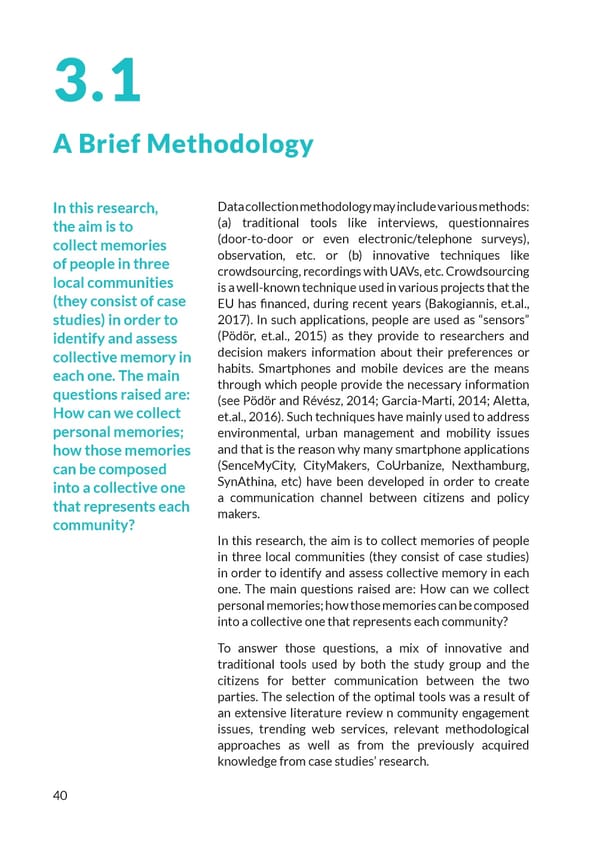3.1 A Brief Methodology In this research, Data collection methodology may include various methods: the aim is to (a) traditional tools like interviews, questionnaires collect memories (door-to-door or even electronic/telephone surveys), of people in three observation, etc. or (b) innovative techniques like local communities crowdsourcing, recordings with UAVs, etc. Crowdsourcing is a well-known technique used in various projects that the (they consist of case EU has financed, during recent years (Bakogiannis, et.al., studies) in order to 2017). In such applications, people are used as “sensors” identify and assess (Pödör, et.al., 2015) as they provide to researchers and collective memory in decision makers information about their preferences or each one. The main habits. Smartphones and mobile devices are the means questions raised are: through which people provide the necessary information (see Pödör and Révész, 2014; Garcia-Marti, 2014; Aletta, How can we collect et.al., 2016). Such techniques have mainly used to address personal memories; environmental, urban management and mobility issues how those memories and that is the reason why many smartphone applications can be composed (SenceMyCity, CityMakers, CoUrbanize, Nexthamburg, into a collective one SynAthina, etc) have been developed in order to create that represents each a communication channel between citizens and policy community? makers. In this research, the aim is to collect memories of people in three local communities (they consist of case studies) in order to identify and assess collective memory in each one. The main questions raised are: How can we collect personal memories; how those memories can be composed into a collective one that represents each community? To answer those questions, a mix of innovative and traditional tools used by both the study group and the citizens for better communication between the two parties. The selection of the optimal tools was a result of an extensive literature review n community engagement issues, trending web services, relevant methodological approaches as well as from the previously acquired knowledge from case studies’ research. 40
 MemoryHandbook new Page 39 Page 41
MemoryHandbook new Page 39 Page 41